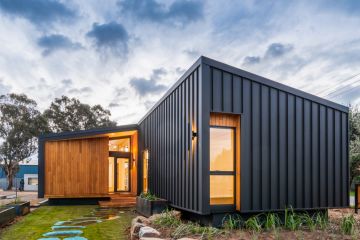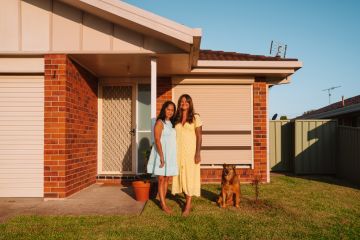What type of property should I buy?
September 27, 2017

For instance, older houses tend to be built on larger blocks of land, while new home buyers or builders more often qualify for government grants and subsidies. And do you really need that big backyard? Townhouses and apartments may be a better bet if you’re starting out in the real estate market.
However, there are pros and cons to new and old houses and units that apply when looking at homes for sale:
New houses and units for sale – pros:
- Buying ‘off the plan’ will usually give you a discounted price and you may be eligible for reductions on stamp duty
- There’s less risk of a serious fault, and potentially lower initial maintenance
- You’re more likely to be covered by government construction and finance protection insurance schemes
- Building your own new unit or house allows you to choose the design and customise the interior and exterior before construction begins
- Better technology and more modern design often means lower energy costs and higher efficiency.
- Buying ‘off the plan’ means your home hasn’t been built yet, so you’re buying sight unseen and may have to wait a year or more before it’s ready
- If you’ve decided to buy in an established suburb there are likely to be fewer new homes and far more established homes on the real estate market so your choices will be limited
- Building your own new home takes time and may involve the stress of project managing the build yourself – things can go wrong
- Fear factor – what happens if the development falls through? Make sure you speak to your legal representative about the potential repercussions and precautions
- There’s higher risk of existing and potentially costly defects that require fixing.
- There’s more potential to buy a bargain fixer-upper and improve capital value over a shorter time
- These properties are more likely to retain value in a slow real estate market
- They tend to be positioned in well-established neighbourhoods with a better ‘community’ neighbourhood feel
- Older houses tended to be built by craftsman, so build quality can often be higher.
- Older, unimproved properties will often require work, and expense, to bring them up to modern standards and interior design finishes
- Unimproved older houses and units as investment properties often attract lower rents and less reliable tenants
- Older properties may be less energy-efficient and, thus, more expensive to heat or cool
- There are also liabilities relating to asbestos and lead paint and piping, which should be considered.
New houses and units for sale – cons:
Buying ‘off the plan’ means your home hasn’t been built yet, so you’re buying sight unseen and may have to wait a year or more before it’s ready
- If you’ve decided to buy in an established suburb there are likely to be fewer new homes and far more established homes on the real estate market so your choices will be limited
- Building your own new home takes time and may involve the stress of project managing the build yourself – things can go wrong
- Fear factor – what happens if the development falls through? Make sure you speak to your legal representative about the potential repercussions and precautions
- There’s higher risk of existing and potentially costly defects that require fixing.
Established houses and units for sale – pros:
There’s more potential to buy a bargain fixer-upper and improve capital value over a shorter time
- These properties are more likely to retain value in a slow real estate market
- They tend to be positioned in well-established neighbourhoods with a better ‘community’ neighbourhood feel
- Older houses tended to be built by craftsman, so build quality can often be higher.
Established houses and units for sale – cons:
- Older, unimproved properties will often require work, and expense, to bring them up to modern standards and interior design finishes
- Unimproved older houses and units as investment properties often attract lower rents and less reliable tenants
- Older properties may be less energy-efficient and, thus, more expensive to heat or cool
- There are also liabilities relating to asbestos and lead paint and piping, which should be considered.
Share:
We recommend
We thought you might like
States
Capital Cities
Capital Cities - Rentals
Popular Areas
Allhomes
More
Allhomes acknowledges the Ngunnawal people, traditional custodians of the lands where Allhomes is situated. We wish to acknowledge and respect their continuing culture and the contribution they make to the life of Canberra and the region. We also acknowledge all other First Nations Peoples on whose lands we work.
"With open hearts and minds, together we grow." artwork by David Williams of Gilimbaa.







